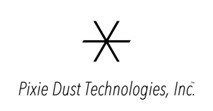Pixie Dust Technologies Announces the Joint Development of Rebar Inspection System
The Rebar Inspection System on-site construction management testing for reinforcing bar arrangement inspections revealed an
"Traditionally, construction management faced heavy workloads from capturing and selecting numerous on-site images," said General Manager of the KOTOWARI department, Tatsuya Nakamoto. "With rising social demands, including adherence to regulations limiting overtime work and calls for work style reform, we anticipate the Rebar Inspection System to transform the process of capturing documentary photographs. A thorough reassessment of work methods is poised to alleviate workload burdens, making this a significant shift in operational efficiency. We anticipate commercializing this technology in the near term, and expect to hit the ground running in activating our sales and marketing initiative."
Development will continue with the objective of achieving a nationwide rollout within MAEDA Corporation by April 2024. To facilitate its widespread adoption, the technology aims to be consumer-oriented and explore external software sales. As usage expands, the Company aims to reassess visual inspection clauses, potentially alleviating the workload of inspectors during both interim and final inspections. The Company anticipates that public systems will adopt this technology, recognizing it as a dependable data for third-party construction supervision in the future.
Certain statements contained in this press release are "forward-looking statements" made pursuant to the safe harbor provisions of the Private Securities Litigation Reform Act of 1995. Such forward-looking statements reflect the Company's current expectations or beliefs concerning future events and actual events may differ materially from current expectations. Words such as "expect," "anticipate," "should," "believe," "hope," "target," "project," "aim," "objective," "goal," "estimate," "potential," "predict," "may," "will," "might," "could," "intend," variations of these terms or the negative of these terms and similar expressions are intended to identify these forward-looking statements. Any such forward-looking statements are subject to various risks and uncertainties, many of which involve factors or circumstances that are beyond the Company's control, including but not limited to the strength of the economy, changes to the market for securities, the effects of inflation and its associated impact on prevailing interest rates, political or financial instability, and other factors which are set forth in the Company's prospectus that forms a part of the Registration Statement on Form F-1 (File No. 333-272476), as amended, and in all filings with the SEC made by the Company subsequent to the filing thereof. The forward-looking statements included in this press release represent the Company's views as of the date of this press release. The Company anticipates that subsequent events and developments will cause its views to change. These forward-looking statements should not be relied upon as representing the Company's views as of any date subsequent to the date of this press release. The Company does not undertake to publicly update or revise its forward-looking statements, whether as a result of new information, future events or otherwise.
Pixie Dust Technologies, Inc. is a Japanese technology company focused on commercializing innovative products and materials utilizing proprietary wave technology. The Company is currently focusing on two areas of product development: (1) "Personal Care & Diversity", where wave control technology is applied to mechanobiology and intervention/assistance in vision, hearing, and touch, and (2) "Workspace & Digital Transformation," where metamaterials (technology that creates properties through structure rather than material) and solutions to commercial design problems, such as in offices or construction sites, are applied.
![]() View original content to download multimedia:https://www.prnewswire.com/news-releases/pixie-dust-technologies-announces-the-joint-development-of-rebar-inspection-system-302065596.html
View original content to download multimedia:https://www.prnewswire.com/news-releases/pixie-dust-technologies-announces-the-joint-development-of-rebar-inspection-system-302065596.html
SOURCE Pixie Dust Technologies








